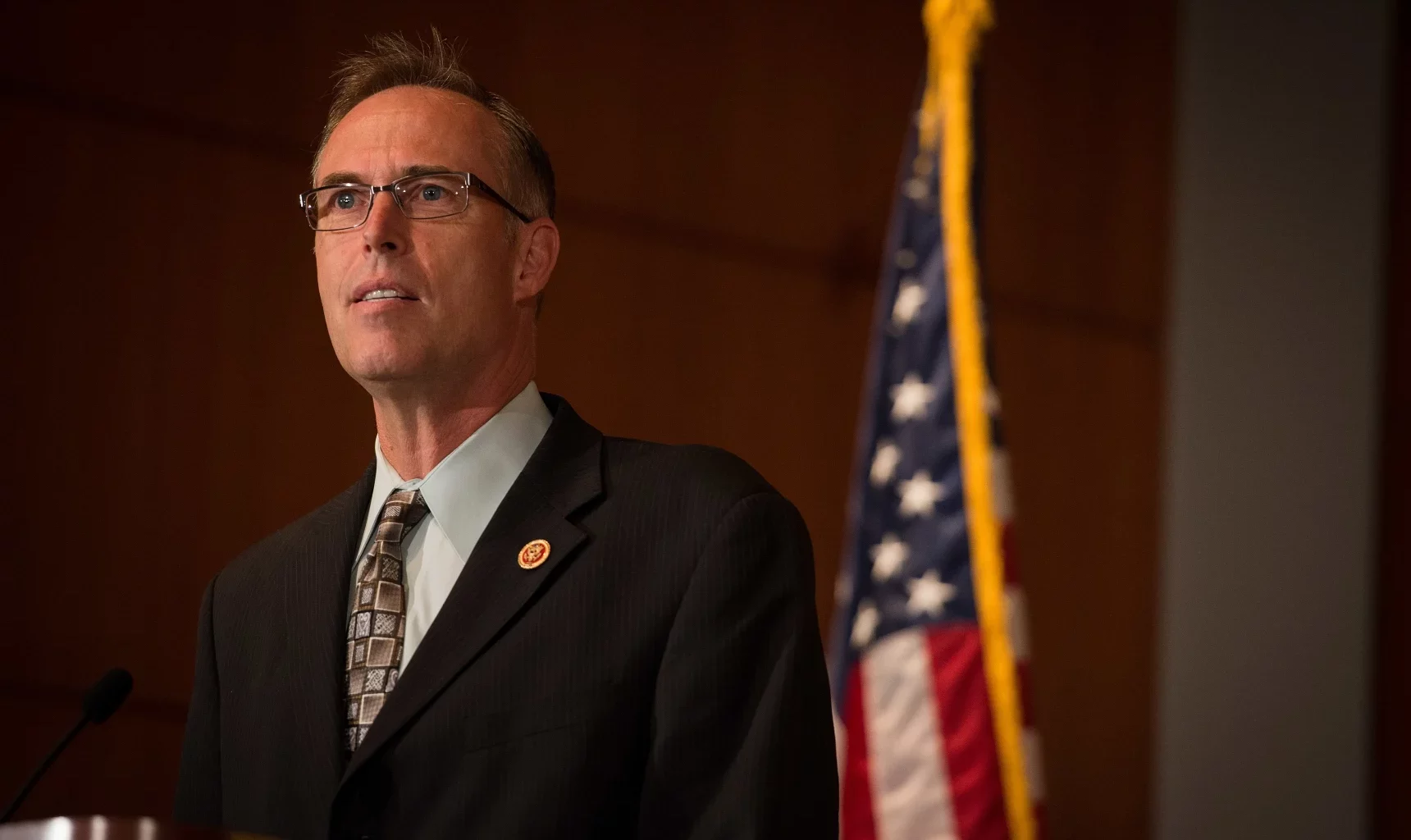The lights are hot and bright on the stage as the contenders for the Republican nominee line up behind their podiums for another debate, perhaps the final one before a candidate is chosen to take on Barack Obama this November. The back drop is the usual conglomeration of patriotic blues, reds and whites to an extent that would make Betsy Ross’s head spin as the debate opens with more fiery attacks against opponents and pronouncements of dominant political skill. Though each potential nominee pushed hard to set themselves apart from the rest of the pack with their opinions on illegal immigration and bailouts, and how their comrades in the limelight are inadequate or simply wrong, there is one underlying theme that binds the three front-runners and continually rears its head among topics of moral ambiguity: religion.
Romney, Santorum and Gingrich all profess themselves to be devout Christians, and though these words are not spoken verbatim, they all insinuate that their Christian values will be an important factor in their policy making as president. Although each sits upon a different branch of the Christian tree: Romney as a Mormon, Santorum the Catholic and Gingrich the soup of the day (that is, Lutheran, then Southern Baptist and currently a Catholic) they all try to remain consistent and agree on certain hot-button topics that are of great importance to their Christian voting base. We’re all familiar with the two issues that are most regularly discussed and debated within the political side-shows, that of the rights of abortion and gay-marriage.
The Republican candidates might say otherwise but the reason for the debate behind these two topics, the only reason they happen to be such a thoroughly discussed issue in modern America, is because of the religious morality of the conservative right. Saying that you are a Christian is synonymous in the U.S. with saying you have good values, and few would openly contradict this statement. There has been increasing focus on the idea of a ‘right morality’ which has all but overshadowed actual relevant political issues (how much talk do you hear about the devaluation of the U.S. dollar? Those are the values that should be taking precedence), and though it has not displaced important American concerns like the weak economy and unemployment, it has taken a fair amount of precious time masquerading as a truly essential subject.
They may flout their religious dogma as a reason for their election to the highest office in the land, but they still refuse to go as far as openly opposing the Constitution which clearly demands there be a separation between church and state. God help them if they imply the U.S. Constitution is faulty, that is akin to doubting the word of the Holy Bible; political blasphemy. So it is no surprise that Mitt Romney, a former missionary for the Mormon Church, would uphold the idea of a separation between church and state – at least in words. We have become complacent to certain ideas, one of them being that a presidential hopeful interposing his or her religious beliefs into their policies is not in defiance of the Constitutions creed. So when Romney says on his website that “he will […] champion a Federal Marriage Amendment to the Constitution defining marriage as between one man and one woman,” many, but not all, of the American people fail to see the irony. Here is a proposed Constitutional amendment that is flagrantly unconstitutional, designed not to protect the rights of the people, which is its purpose, but to legally limit their freedom to live the life the Constitution is supposed to uphold. As Romney has been quoted, “Freedom requires religion,” it does not oppose it, it is inseparable.
These values are set before the American people as ‘good values,’ that is ‘Christian values,’ as if there were no other kind. As Romney said, without religion there is no freedom, which is the same as saying atheism is tyrannical and immoral. Atheism has long been associated with hedonistic ambivalence and moral bankruptcy. How can a person claiming to have no belief in God or religion be a moral person? The concept of morality in Republican politics has essentially become inseparable from Christian values, even when two of the key topics they habitually return to are by definition contradictory to the American belief and worship of freedom. The person who sides with biblical scripture and decides that two people of the same sex entering wedlock should not only be seen as immoral but illegal is said to have good family values, while one who openly denies having faith in Christianity would be much more likely to allow people the freedom to marry whomever they wish. This is the true irony behind atheist morality vs. Christian morality; while one is open and unrestricted the other is narrow and subject to ancient and outdated beliefs, yet the latter is the one a large portion of American citizens claim to believe as the height of righteousness.
Unlike religious doctrines atheism has no set rules. The Christian right sees this as a gapping target to fire upon. If atheism has no set of moral rules to live by, how are they not going to disintegrate into a tribe of self-servicing brutes? Yet the attacks never match what simple observation will show. The religious go forth with this attack teetering on the illogical hope that no one will question it. Yet long before Jesus of Nazareth was born in his manger, or Moses walked down the mountain with his Ten Commandments, the world, and people, were fairly similar to the way they are today. There is something called ‘rational morality;’ what is bad for the species is considered immoral on an evolutionary level, so something like cold-blooded murder isn’t going to make it onto anyone’s ethical rights list. Morality does not need the threat of punishment behind it in the form of eternal retribution. A person raised without religion is just as capable of learning right from wrong as anyone else, and what is considered right and wrong doesn’t have to be standardized by scripture.
Imagine an America where the president was not bogged down by ideas of Christian or other religious morality. When you get down to the nitty-gritty the foundation of religious ethics are formed by one simple concept: do whatever God, or a god, tells you and do not make him angry or there will be some kind of sanctions involved, usually severe punishment, i.e. eternal damnation. This means that if a god tells you that sexual intercourse between two men is wrong, there is no questioning it or you will suffer the consequences of a wrathful deity. Instead of being pro-life, a popular Christian maxim, Christian morality is antilife because it does not deal with topics in a rational way, but already has their ethical to-do list engraved (literally in some cases) in stone. It is focused on the afterlife of the soul, not on the reality of living human beings in the world today. Atheism does not necessarily mean a higher level of relevant ethical behavior, there are good and bad Christians and there are good and bad atheists, that is simply human behavior, but being an atheist does remove a great deal of baggage that allows for abstract reasoning and flexibility to an ever changing world.
An atheist president would have a wider and less cluttered view when it comes to these topics that the media and conservative politicians continue to have issue against. Homosexuality would no longer be an issue at all, nor any other, what we currently refer to as, victimless crimes. Imagine a president that need not waste time worrying about actions or activities that have no rational reason to be considered amoral and can instead focus all of his time and energy into the important functions of balancing a federal budget, lowering unemployment and raising the value of the dollar. In other words, effectively running a country. Atheism does not guarantee competence, but it certainly clears the path of befuddling debris.
In our current society anyone running as a presidential hopeful who openly admitted they are an atheist would not get far in the race, and certainly wouldn’t win any nominations let alone the actual presidency. That is not to say certain presidents in the past weren’t in fact atheists, like Thomas Jefferson who edited the New Testament to remove all the religious aspects in favor of a streamlined version of the basic moral preaching’s of Jesus. He, and potentially others, simply knew better than to openly flout their skepticism. To do so then, as today, could potentially be political suicide. In spite of the arguments that an atheist president would not have the ethical foundation that something like religion supposedly provides, the opposite appears to be much truer. Rick Santorum states in one breath that “my passion for protecting and preserving freedom is a gift,” while one paragraph later he begins an attack on gay marriage. How can this opposing view be justified? How can a purported love of freedom mesh with the blatant statement that one is opposing the freedom of certain individuals? And that based on a superstition that goes under the heavy name of religion. Atheism and unethical behavior have no correlation, while religious persecution is a definable fact of history. Human beings have a natural and learned morality that is apart from anything religion has to offer, not to mention much more open in its acceptance of certain behaviors that are of no harm to anyone. What the religious views of the conservative candidates shows is not that they have greater values than non-religious persons, but that it seems time that a true and open atheist steps forward to oppose them and their immaterial prejudiced views that have no more relevance or necessity in the modern world than the regular animal sacrifices that were so important in the Old Testament.









